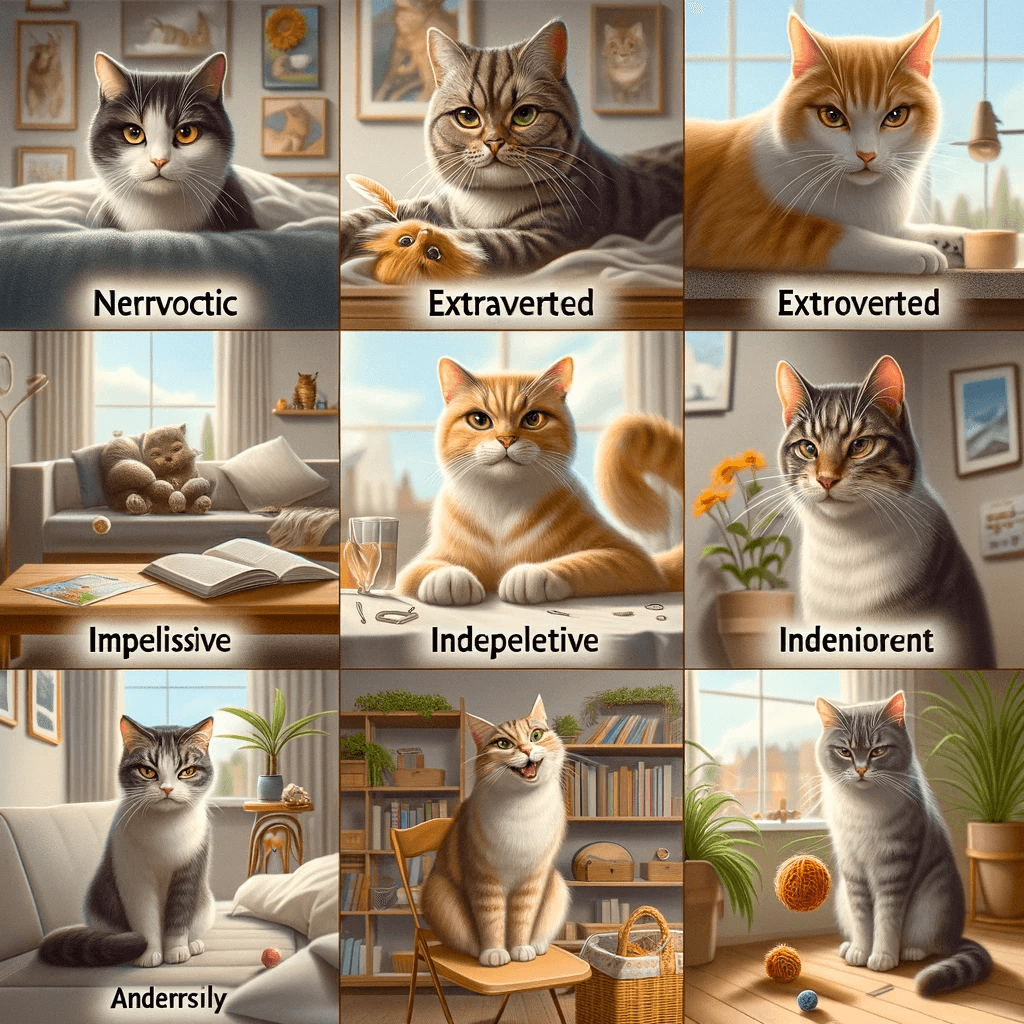
Understanding Cat Personality Types: The Essential Guide to the 7 Unique Feline Characters
Share
Cats, with their enigmatic personas, are as diverse in character as they are in appearance. The concept of the "Feline Five" personality types has been pivotal in understanding our feline friends, but recent observations and studies suggest there are, in fact, seven distinct personality types. This in-depth exploration into the "Feline Seven" not only enriches our understanding of cats but also enhances our ability to cater to their specific needs, ensuring a happier and healthier life for our pets.
1. The Neurotic (Cautious and Sensitive)
Cats that fall into the Neurotic category are often seen as the introverts of the feline world. They exhibit signs of anxiety and may appear skittish in unfamiliar situations. These cats thrive in stable, predictable environments. They often hide when scared, and sudden changes can cause them stress. Providing them with safe spaces, like cozy hideouts or high perches, helps them feel secure. It's also important to gradually introduce them to new experiences, ensuring they don't feel overwhelmed.
2. The Extraverted (Curious and Engaging)
Extraverted cats are the life of the party. They exhibit high levels of curiosity and often show a keen interest in their surroundings and the happenings around them. These cats love interactive play and require various forms of mental and physical stimulation to keep them entertained. They are less likely to enjoy solitude and may become destructive if left alone for long periods. To keep them engaged, introduce puzzle toys, interactive feeders, and dedicate time each day for play.
3. The Dominant (Assertive and Confident)
Dominant cats are the assertive ones, often taking charge in a multi-cat household. They may guard resources like food bowls, toys, and litter boxes. It's crucial to ensure that each cat in the household has its own space and resources. Multiple feeding stations and litter boxes, ideally in different rooms, can help prevent conflicts. Understanding and managing dominant behavior is key to maintaining peace in a multi-cat environment.
4. The Impulsive (Unpredictable and Energetic)
Impulsive cats are unpredictable and can be reactive to their environment. They often exhibit a mix of high energy and anxiety. Creating a routine for these cats can provide a sense of stability, reducing their impulsive reactions. Avoid startling them and provide a calm, predictable environment. Regular play sessions can help manage their energy levels.
5. The Agreeable (Social and Friendly)
Agreeable cats are the epitome of feline sociability. They tend to get along well with other pets and people and are often described as friendly, affectionate, and easy-going. These cats are ideal for families or multi-pet households. They were likely well-socialized as kittens, which is crucial for developing a sociable adult cat. Regular interaction and socialization are key to maintaining their agreeable nature.
6. The Independent (Solitary and Self-sufficient)
Independent cats value their alone time. They are self-sufficient, often finding ways to entertain themselves. These cats may not seek out human interaction as frequently as others but still require care and attention. They appreciate having access to various types of enrichment, like window perches to observe the outside world or toys they can play with independently.
7. The Adventurous (Bold and Daring)
Adventurous cats are fearless explorers. They are often intrigued by the outside world and may enjoy activities like leash walking or supervised outdoor time. These cats benefit from environments that challenge them and satisfy their exploratory instincts. Training them for activities like leash walking can provide a safe outlet for their adventurous spirit.
Conclusion:
Each cat's personality is unique, often a blend of several of these types. Recognizing and understanding these personality traits can significantly enhance the way we care for our cats. By providing an environment that caters to their specific personality type, we not only ensure their well-being but also deepen our bond with these fascinating creatures.
